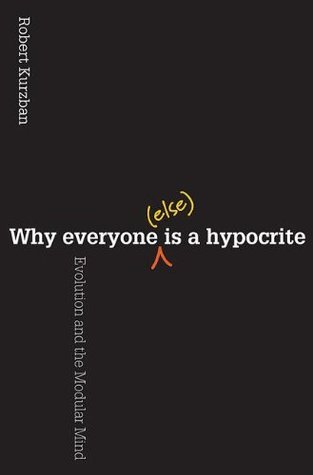What do you think?
Rate this book


We're all hypocrites. Why? Hypocrisy is the natural state of the human mind.
Robert Kurzban shows us that the key to understanding our behavioral inconsistencies lies in understanding the mind's design. The human mind consists of many specialized units designed by the process of evolution by natural selection. While these modules sometimes work together seamlessly, they don't always, resulting in impossibly contradictory beliefs, vacillations between patience and impulsiveness, violations of our supposed moral principles, and overinflated views of ourselves.
This modular, evolutionary psychological view of the mind undermines deeply held intuitions about ourselves, as well as a range of scientific theories that require a "self" with consistent beliefs and preferences. Modularity suggests that there is no "I." Instead, each of us is a contentious "we"--a collection of discrete but interacting systems whose constant conflicts shape our interactions with one another and our experience of the world.
In clear language, full of wit and rich in examples, Kurzban explains the roots and implications of our inconsistent minds, and why it is perfectly natural to believe that everyone else is a hypocrite.
289 pages, Kindle Edition
First published December 21, 2010
The mind is a community of "agents." Each has limited powers and can communicate only with certain others. The powers of mind emerge from their interactions for none of the Agents, by itself, has significant intelligence. [...] Everyone knows what it feels like to be engaged in a conversation with oneself. In this book, we will develop the idea that these discussions really happen, and that the participants really "exist." In our picture of the mind we will imagine many "sub-persons", or "internal agents", interacting with one another. Solving the simplest problem—seeing a picture—or remembering the experience of seeing it—might involve a dozen or more—perhaps very many more—of these agents playing different roles. Some of them bear useful knowledge, some of them bear strategies for dealing with other agents, some of them carry warnings or encouragements about how the work of others is proceeding. And some of them are concerned with discipline, prohibiting or "censoring" others from thinking forbidden thoughts.
almost any time you come across a theory with the word "self" in it, you should check your wallet.